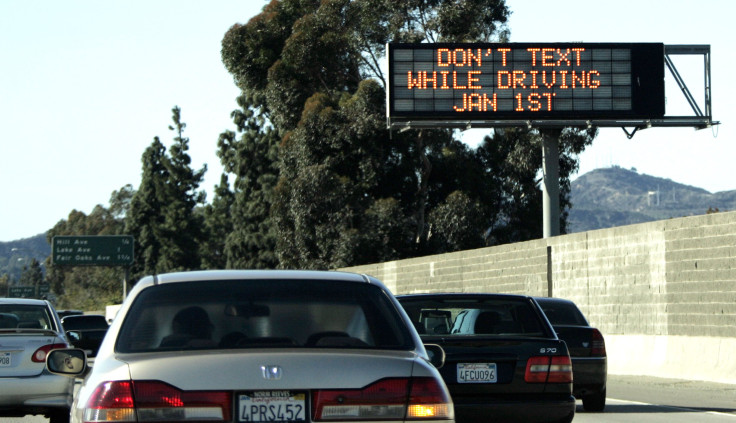California Court Allows Drivers To Use Smartphone Maps While Driving

The Fifth District Court of Appeals in California on Thursday handed down a ruling that threw out a California driver’s ticket for using his cellphone while driving because he was consulting his iPhone’s GPS map.
The ruling opens up ambiguity for officers, drivers and the courts. How will police officers differentiate between GPS use and texting? Will drivers argue they were using their phone’s map when they appeal tickets?
Jaime Coffee, a public information officer for the California Highway Patrol, says it’s too soon to tell how the ruling will affect his department, but that its officers will “continue to enforce the traffic safety laws that are on the books.”
Steven Spriggs is the driver in question. He consulted his phone’s map while caught in a rush-hour traffic jam. It was nighttime and his cellphone’s glow gave him away. In the first case over the ticket, Fresno County Judge Kent Hamlin ruled:
“the primary evil sought to be avoided is the distraction the driver faces when using his or her hands to operate the phone. That distraction would be present whether the wireless telephone was being used as a telephone, a GPS navigator, (or) a clock…”
Which is what the California legislators who wrote the law likely had in mind, so the question is whether or not Spriggs was actually distracted, which is nearly impossible to prove.
Spriggs’ case is not the only legal grey area in California’s texting-and-driving laws. For example, a driver is allowed to dial a phone number while driving, but “talking and listening” on your cellphone without a hands-free device is grounds for a fine. Any text-based communication is also specifically mentioned as a violation.
The appellate judges wrote in their 18-page ruling that California’s laws regarding talking and listening while driving could have been written more clearly.
It seems most parties, Spriggs included, sought mostly to get a clarification of California’s texting-and-driving laws. He told USA Today that he wants the law to be rewritten so officers can do their job without ambiguity and that he’s no fan of distracted drivers.
“We’re distracted all the time. If our distractions cause us to drive erratically, we should be arrested for driving erratically,” Spriggs said.
He hopes the California legislature will reexamine the laws. "They're going to have to do something," he said. "I just hope they take a look at the big picture."
This ruling likely means more tickets, more burden on patrol officers and more valuable court time taken up for appeals. Instead of a clarification, now there’s more ambiguity.
© Copyright IBTimes 2024. All rights reserved.












